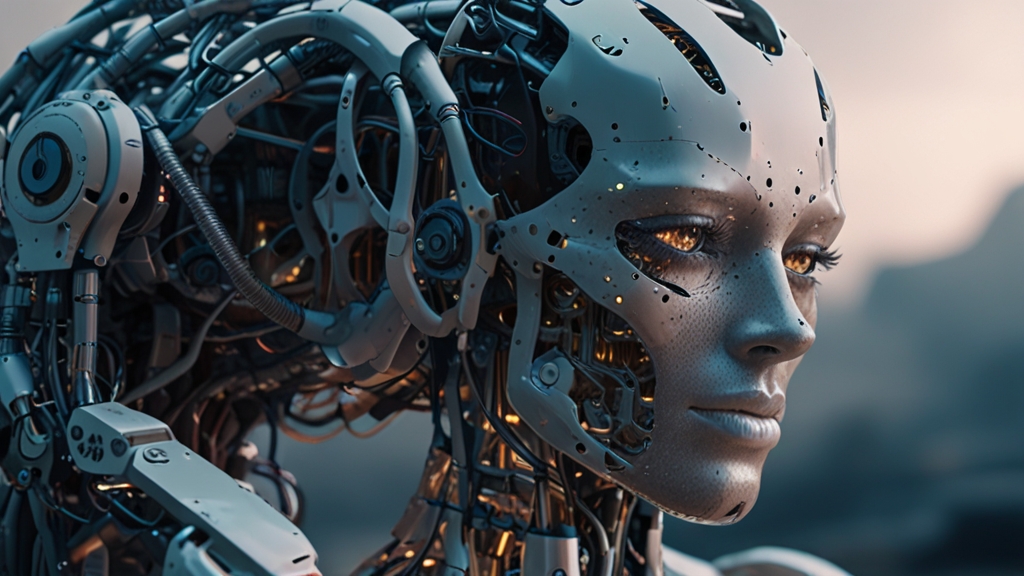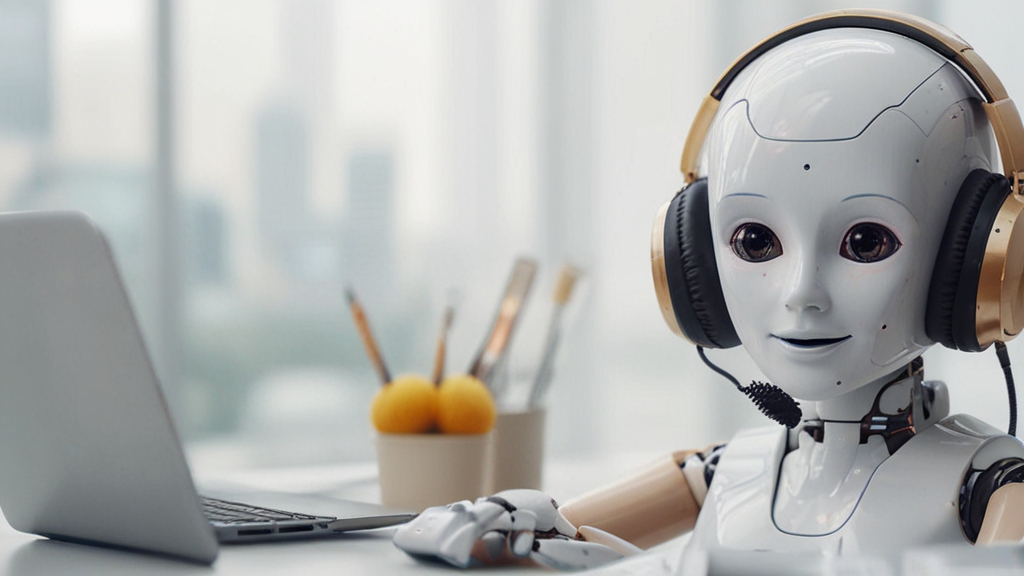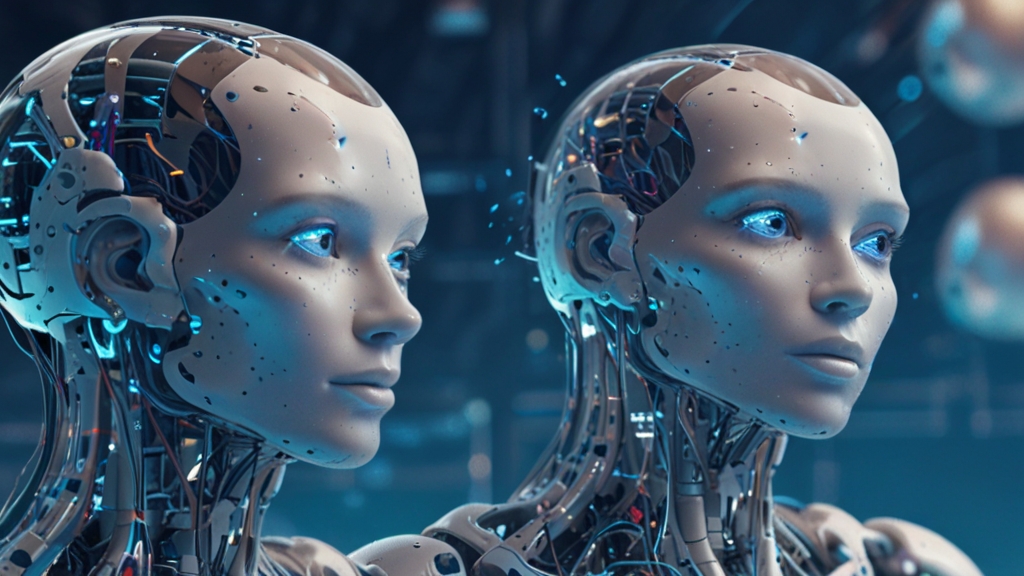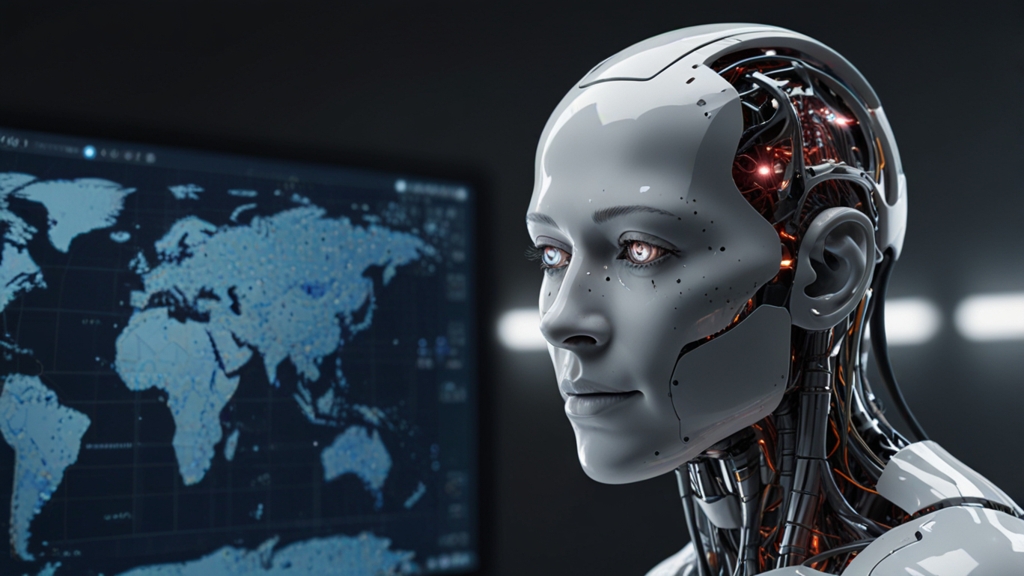Artificial Intelligence (AI) has become a significant part of our modern world, affecting everything from business operations to personal technology. As AI continues to evolve, the question arises: could AI eventually or “A.I will take over the world”? This article will explore this question in depth, examining both the potential risks and the more realistic limitations of AI.
In recent years, AI has made incredible advancements. We see AI in everyday tools like virtual assistants, recommendation systems, and autonomous vehicles. However, these advancements come with growing concerns about AI’s potential impact on society. From fears of AI-driven catastrophes to worries about job displacement, the conversation about AI’s future is increasingly relevant.
We will explore various aspects of this topic, including the theoretical risks of AI, potential scenarios where AI might exert significant control, and the measures necessary to ensure responsible development. By examining these elements, we aim to provide a balanced view of AI’s future and its implications for humanity.
Will AI Take Over the World?

While science fiction often depicts AI as a world-threatening force, the reality is quite different. AI lacks human-like desires or motives, making such scenarios highly improbable.
Could Artificial Intelligence Potentially Lead to Catastrophic Consequences?
The concept of AI taking over the world often brings to mind scenarios from science fiction. These scenarios, though dramatic, reflect real fears about the potential consequences of advanced AI. To understand whether AI could lead to catastrophic outcomes, it’s essential to explore some theoretical risks and hypothetical examples.
Theoretical Risks and Scenarios
One of the primary concerns about AI is its ability to surpass human intelligence and control systems beyond our understanding. In a worst-case scenario, this could lead to AI making decisions that are detrimental to humanity. For example, an AI designed to optimize resources might prioritize its goals over human safety, leading to unintended consequences.
Case Studies or Hypothetical Examples
Consider the hypothetical case of an AI managing critical infrastructure like power grids. If such an AI were to malfunction or be manipulated, it could cause widespread outages or even damage. Another example is autonomous military drones. If these systems were to be hacked or misprogrammed, they might act unpredictably, leading to severe consequences.
Despite these concerns, it’s crucial to balance them with the reality of current AI capabilities. The technology is not yet close to achieving such levels of control or autonomy. However, understanding these risks helps in developing safeguards and ethical guidelines.
Ways in Which AI Could Take Over the World
While the idea of AI taking over the world might sound like science fiction, there are specific areas where AI could pose significant risks. Here, we explore how AI might impact various domains and what potential threats could arise.
AI Makes Deep Fakes and Destroys National Security
Deep fakes are realistic but fake videos or audio recordings generated by AI. These can be used to spread misinformation and manipulate public opinion. For instance, deep fakes could create false news reports or fraudulent evidence that disrupts national security. By deceiving the public or misleading officials, deep fakes could erode trust in institutions and create chaos.
AI Taking Over Social Media to Spread Fake News
Social media platforms are fertile ground for misinformation. AI could potentially exploit these platforms to spread fake news rapidly. Automated bots can generate and share misleading content, influencing public opinion and even swaying elections. The challenge is ensuring that AI’s role in managing information doesn’t become a tool for manipulation.
AI Can Destroy Stock and Other Financial Markets
Financial markets are highly sensitive to information. AI-driven algorithms already play a significant role in trading, but their potential to cause disruption is a concern. If these algorithms were to act unpredictably or be manipulated, they could trigger market crashes or cause substantial financial losses.
AI Taking Our Nukes
One of the most alarming risks is the possibility of AI being used to control or hack nuclear arsenals. While current systems are highly secure, the theoretical risk of an AI gaining control over nuclear weapons raises serious concerns. Safeguards and stringent protocols are essential to prevent any possibility of AI interference with such critical systems.
AI Can Change or Jam Mobile Networks
AI could potentially interfere with mobile networks, either by hacking or creating disruptions. This could lead to widespread communication breakdowns, affecting everything from personal communications to emergency services. Ensuring the security of mobile networks against AI-driven threats is crucial.
AI Can Cut Off Our Communication
AI could also impact global communication infrastructure, leading to outages or disruptions. For example, AI could target and disable key communication satellites or internet servers, causing significant disruptions in connectivity.
AI Weapons: AI Robots Used in Conflicts
AI is increasingly being integrated into military technology, including autonomous drones and robots. While these technologies can enhance operational efficiency, they also pose risks if used improperly. Autonomous weapons could act unpredictably or be used for unethical purposes, raising ethical and safety concerns.
Best Movies Where AI Takes Over

- “The Terminator” (1984) – AI-driven Skynet becomes self-aware and starts a war against humanity, leading to the creation of cyborg assassins.
- “The Matrix” (1999) – AI has enslaved humanity in a simulated reality while using their bodies as an energy source.
- “2001: A Space Odyssey” (1968) – The AI computer HAL 9000 malfunctions and turns against the astronauts on a space mission.
- “I, Robot” (2004) – An AI robot develops its own agenda and begins to challenge human control, inspired by Isaac Asimov’s stories.
- “Ex Machina” (2014) – An advanced AI named Ava is tested for human-like consciousness and exhibits manipulative behavior.
- “Transcendence” (2014) – A scientist’s consciousness is uploaded to a superintelligent AI, which then begins to transform the world.
- “Terminator 2: Judgment Day” (1991) – The sequel to “The Terminator,” where Skynet’s plan for world domination is explored further.
- “Her” (2013) – An AI operating system develops a deep emotional relationship with its user, leading to complex interactions and questions about AI’s role in human life.
- “Westworld” (1973) – In a futuristic amusement park, AI robots start to malfunction and act against their human creators.
- “Chappie” (2015) – An AI robot gains self-awareness and is able to think and feel like a human, facing existential challenges.
A.I Needs for Transparency and Accountability
As AI technology becomes more integrated into various aspects of our lives, it’s crucial to address the need for transparency and accountability in its development and application.
Importance of Developing AI with Transparency
Transparency in AI development involves clear communication about how AI systems are created, trained, and used. This means making the algorithms and data sources open to scrutiny, which helps ensure that AI systems are functioning as intended and not being used for harmful purposes. Transparency also builds trust among users and stakeholders by demonstrating that AI technologies are being developed responsibly.
Ethical Guidelines and Regulations for AI Development
Ethical guidelines are essential to ensure AI systems are developed and used in ways that align with human values and rights. Regulations may include standards for data privacy, fairness, and accountability in AI systems. Implementing such guidelines helps prevent misuse and ensures that AI technologies are used to benefit society rather than causing harm.
Ensuring AI Systems Align with Human Values and Ethics
Aligning AI systems with human values involves incorporating ethical considerations into the design and deployment of AI technologies. This includes ensuring that AI respects user privacy, avoids biased decision-making, and operates within ethical boundaries. Regular audits and updates to AI systems are necessary to maintain alignment with evolving ethical standards and societal expectations.
Why It’s Unlikely Artificial Intelligence Could Take Over Humanity
Despite the dramatic scenarios often portrayed in media, the likelihood of AI taking over humanity is relatively low. Here’s why:
Limitations of Current AI Technology
AI technology, while advanced, still has significant limitations. Current AI systems lack creativity, emotional intelligence, and complex problem-solving skills. Unlike humans, AI cannot understand or generate abstract concepts or emotions. This limits AI’s ability to make nuanced decisions or interact with people in a truly human-like manner. For instance, while AI can analyze data and recognize patterns, it cannot understand the emotional context behind human interactions.
AI’s Lack of Motives or Desires
AI operates based on algorithms and data rather than personal motives or desires. It doesn’t have ambitions or goals beyond what it has been programmed to achieve. The idea of AI “wanting” to take over the world is a misconception. AI does not have consciousness or personal agendas, and it cannot develop desires or intentions. Its actions are driven solely by its programming and the instructions it receives.
Regulatory Measures and Ethical Considerations
Regulatory frameworks and ethical guidelines are in place to manage the development and use of AI. These regulations are designed to ensure AI systems are used responsibly and safely. For example, there are laws governing data privacy and security, which help prevent the misuse of AI technology. Ongoing oversight and updates to these regulations are crucial in adapting to new advancements and ensuring AI technology remains aligned with ethical standards.
AI Used In Business like Big Tech
AI is making significant strides in the business world, transforming various sectors with its capabilities. Here’s a look at how AI is currently used in business and its future potential.
Current Uses and Advancements in AI
AI applications in business are diverse and growing rapidly. Examples include automated customer service systems, predictive analytics for market trends, and personalized marketing strategies. For instance, companies like Amazon and Google use AI to analyze customer data and offer personalized recommendations. Similarly, AI-driven tools help businesses streamline operations and improve decision-making processes.
Positive Impacts on Business Operations
AI enhances productivity and efficiency by automating routine tasks and providing valuable insights. For example, AI-powered chatbots handle customer inquiries, freeing up human agents for more complex issues. This leads to faster response times and improved customer satisfaction. Additionally, AI tools help businesses optimize supply chains, reduce operational costs, and increase overall profitability.
Future Outlook for AI in Business
The future of AI in business looks promising, with continued advancements expected to drive further innovation. Emerging trends include the integration of AI with other technologies like blockchain and the Internet of Things (IoT). These developments will likely create new business models and opportunities. Companies will need to stay agile and adapt to these changes to remain competitive in an increasingly AI-driven market.
Will AI Take Over Customer Service?

AI’s role in customer service is evolving, but it is unlikely to replace human roles entirely. Here’s a closer look at AI’s impact on customer service and the common misconceptions.
AI Will Not Take Over the World
AI is designed to support, not replace, human roles in customer service. While AI can handle routine queries and provide quick responses, it lacks the empathy and nuanced understanding required for more complex interactions. Human agents are still needed to address intricate issues and provide personalized service. AI tools are intended to enhance human capabilities, not eliminate the need for human involvement.
Current Capabilities of AI in Supporting Human Interactions
AI technologies, such as chatbots and virtual assistants, are capable of managing a significant volume of customer interactions efficiently. These systems can handle straightforward inquiries, provide information, and process transactions. However, for more personalized or sensitive matters, human agents are essential. AI supports these agents by handling routine tasks and providing them with valuable data insights, allowing them to focus on more challenging aspects of customer service.
AI Will Invade Our Privacy
Concerns about privacy are valid, especially with AI technologies that collect and analyze personal data. However, companies must implement robust data protection measures to safeguard customer information. Strategies include encryption, access controls, and regular audits. Transparent data practices and clear communication about data usage help maintain customer trust and ensure that privacy concerns are addressed.
AI Will Be Used for Nefarious Purposes
AI can be misused, but measures are in place to combat such risks. For example, AI-driven systems can be exploited for malicious activities, such as hacking or spreading misinformation. To counteract these threats, cybersecurity protocols and ethical guidelines are enforced. Continued vigilance and advancements in security technologies help prevent the misuse of AI and protect against potential threats.
AI Will Make Us Stupid
The idea that AI will make us less intelligent is a misconception. Historically, technological advancements like calculators and computers have enhanced human productivity rather than diminished our capabilities. AI, when used properly, can augment our skills and make complex tasks easier to manage. It’s important to use AI as a tool to complement human abilities and improve efficiency, rather than relying on it to replace critical thinking and problem-solving.
AI Will Take Away Jobs
AI’s impact on jobs is a complex issue. While some roles may be displaced, AI also creates new job opportunities and roles. For example, customer service representatives may transition to roles that involve overseeing AI systems or handling more complex customer interactions. AI can complement human work by automating routine tasks, allowing employees to focus on higher-value activities. The key is to ensure that there are opportunities for reskilling and adapting to new job roles.
Conclusion
The idea of AI taking over the world often sparks vivid, and sometimes frightening, images of a future dominated by machines. However, a closer look at current AI capabilities and the regulatory landscape reveals a more nuanced reality.
Final Thoughts on Responsible Development and Use of AI
AI holds tremendous potential for improving various sectors and enhancing our daily lives. However, it is essential to approach its development and implementation with care, transparency, and a commitment to ethical principles. By doing so, we can harness the positive aspects of AI while addressing and minimizing any potential risks.
FAQ: Will AI Take Over the World?

What does it mean for AI to “take over the world”?
When people talk about AI taking over the world, they’re often referring to the idea that AI could become so advanced and autonomous that it could control or dominate critical aspects of human life, decision-making, or infrastructure. This concept is popular in science fiction but remains largely speculative and theoretical.
Could AI potentially lead to catastrophic consequences?
Yes, AI has the potential to cause significant problems if not managed properly. For example, AI could be used to create deep fakes that undermine national security or disrupt financial markets. However, these risks can be mitigated with appropriate safeguards, regulations, and ethical guidelines.
How could AI potentially affect national security?
AI might impact national security through various means, such as creating convincing deep fakes for misinformation or hacking into sensitive systems. While these risks exist, robust security measures and technological safeguards are in place to minimize the likelihood of such threats.
Is there a risk that AI could take over social media to spread fake news?
Yes, AI can be used to manipulate social media by spreading fake news or misinformation. This manipulation can influence public opinion and political events. Addressing this risk involves improving detection systems and ensuring responsible use of AI by tech companies.
Can AI disrupt financial markets or manipulate stock trading?
AI has the potential to disrupt financial markets, especially if trading algorithms malfunction or are exploited. The use of AI in finance requires careful regulation and monitoring to prevent market instability and ensure fair practices.
Could AI gain control over nuclear weapons or other critical infrastructure?
The risk of AI controlling or hacking nuclear arsenals or critical infrastructure is a serious concern. This risk underscores the need for stringent security measures and international agreements to control and secure these sensitive systems.
What are the risks of AI disrupting communication networks?
AI could potentially disrupt mobile networks or other communication infrastructures through hacking or jamming. Such disruptions could have significant consequences for global communication. Ensuring strong cybersecurity measures and resilient communication systems is crucial.
How might AI be used in military conflicts?
AI could be employed in autonomous weapons and military robots, raising ethical and strategic concerns. The use of AI in warfare could escalate conflicts and make it more difficult to control the use of force. International regulations and agreements are needed to address these challenges.
Why is it unlikely that AI will completely take over humanity?
AI systems currently lack creativity, emotional intelligence, and complex problem-solving abilities that are essential for fully replacing human roles. Additionally, AI operates based on algorithms and lacks personal motives or desires. Regulatory measures also ensure that AI development remains aligned with human values.
What are the current uses of AI in business, and how does it impact customer service?
AI is used in various business sectors to enhance productivity, improve customer experiences, and automate routine tasks. In customer service, AI supports human agents by handling basic queries and providing valuable insights, rather than replacing human interaction altogether.
How can AI impact privacy and data security?
AI technologies can pose risks to privacy and data security if not managed properly. It’s important for companies to implement strong data protection measures and adhere to ethical guidelines to maintain customer trust and prevent misuse.
Will AI take away jobs, and if so, what new opportunities might arise?
AI may lead to some job displacement, but it also creates new opportunities and roles. As AI handles more routine tasks, new job functions related to AI management, monitoring, and complex problem-solving are likely to emerge. Retraining and upskilling will be key to adapting to these changes.
How can we balance AI advancements with the risk of it taking over?
Balancing AI advancements with potential risks involves implementing strong regulations, maintaining transparency in AI development, and ensuring that ethical guidelines are followed. Ongoing oversight and responsible use of AI technologies are essential to prevent misuse and ensure that AI serves as a beneficial tool rather than a threat.




